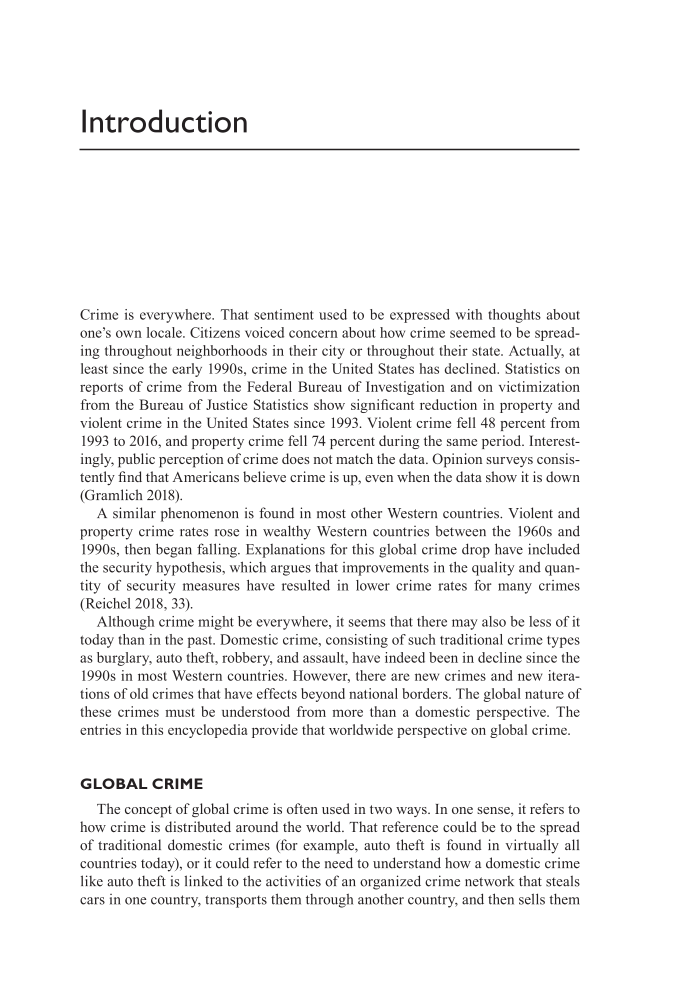Introduction Crime is everywhere. That sentiment used to be expressed with thoughts about one’s own locale. Citizens voiced concern about how crime seemed to be spread- ing throughout neighborhoods in their city or throughout their state. Actually, at least since the early 1990s, crime in the United States has declined. Statistics on reports of crime from the Federal Bureau of Investigation and on victimization from the Bureau of Justice Statistics show significant reduction in property and violent crime in the United States since 1993. Violent crime fell 48 percent from 1993 to 2016, and property crime fell 74 percent during the same period. Interest- ingly, public perception of crime does not match the data. Opinion surveys consis- tently find that Americans believe crime is up, even when the data show it is down (Gramlich 2018). A similar phenomenon is found in most other Western countries. Violent and property crime rates rose in wealthy Western countries between the 1960s and 1990s, then began falling. Explanations for this global crime drop have included the security hypothesis, which argues that improvements in the quality and quan- tity of security measures have resulted in lower crime rates for many crimes (Reichel 2018, 33). Although crime might be everywhere, it seems that there may also be less of it today than in the past. Domestic crime, consisting of such traditional crime types as burglary, auto theft, robbery, and assault, have indeed been in decline since the 1990s in most Western countries. However, there are new crimes and new itera- tions of old crimes that have effects beyond national borders. The global nature of these crimes must be understood from more than a domestic perspective. The entries in this encyclopedia provide that worldwide perspective on global crime. GLOBAL CRIME The concept of global crime is often used in two ways. In one sense, it refers to how crime is distributed around the world. That reference could be to the spread of traditional domestic crimes (for example, auto theft is found in virtually all countries today), or it could refer to the need to understand how a domestic crime like auto theft is linked to the activities of an organized crime network that steals cars in one country, transports them through another country, and then sells them
Document Details My Account Print multiple pages
Print
You have printed 0 times in the last 24 hours.
Your print count will reset on at .
You may print 0 more time(s) before then.
You may print a maximum of 0 pages at a time.




























































































































































































































































































































































































































































































































































































































































































































































































































































































